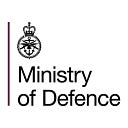10 things you need to know about NATO
NATO and its member allies have been working behind the scenes keeping you safe for nearly 70 years. Here are the key facts.
“Our way, is the way of security and of peace. That is our goal. It is towards peace and security that all our efforts are directed of this Atlantic council.”
Lord Ismay — First NATO Secretary General
1. What is NATO?
The North Atlantic Treaty Organisation (NATO) is a military and political alliance of 29 countries across Europe and North America. The UK is a founding member of the organisation, and has supported its allies for nearly 70 years since its formation in 1949.
2. An attack on one, is an attack on all
Otherwise known as Article 5 of the Washington Treaty (NATO’s founding document) it means that “an attack or provocation on one of its member states is considered as an attack against all.” This is known as collective defence and has come into play once — in response to the 9/11 terrorist attacks in 2001.
3. Ready to defend freedom.
The UK Armed Forces take a leading role in various NATO operations and exercises across the globe. An example of this was the successful Exercise Trident Juncture in 2018, which tested the organisation’s ability in a Article 5 scenario. NATO nations continuously train to prepare to defend freedom from any threat from any direction.
4. Who are NATO?
NATO is based in Brussels, Belgium and former Norwegian Prime Minister Jens Stoltenberg is the current Secretary-General. NATO has bases across Europe and Northern America, such as the Allied Maritime Command HQ in Northwood, North London.
5. Decision Makers
Everyday, member countries consider and make decisions on security issues at all levels and in a variety of fields. A “NATO decision” is the expression the 29 member’s collective will, as all decisions are made on a consensus basis.
6. Defence Spending
All members of NATO must commit to spending at least 2% of their GDP on defence. The UK fully meets and exceeds this commitment.
7. Partner Nations
NATO also have partner relationships with nations that are not full members of the organisation. For example, the 1994 Mediterranean Dialogue formed a relationship with NATO and Egypt, Israel, Jordan, Mauritania, Morocco and Tunisia. It seeks to contribute to security and stability in the Mediterranean. Algeria also later joined in 2000.
8. Protecting our allies by securing the skies
As part of efforts in air policing, NATO defends airspace over countries such as Albania, Luxembourg, Iceland, Slovenia, Latvia, Lithuania and Estonia on a 24/7 basis, 365 days per year. These countries do not have their own air capabilities and have formed agreements with allies within NATO to be protected. The RAF regularly take part in this, such as last year, when they were stationed in Romania.
9. Together we are stronger
Collectively, NATO members comprise at least 50% of the world’s total GDP and can call on over 3 million men and women on active service.
10. Historic British leadership
Decorated military officer and Brit, Lord Ismay was the first Secretary General of NATO. He was appointed to the post on March 13, 1952, and took up office both as Secretary General of the Organisation and as Vice-Chairman of the North Atlantic Council on April 4, 1952, the third anniversary of the signing of the North Atlantic Treaty.
Here’s his full bio: Click Here
Find out where the UK Armed Forces are deployed on NATO operations here:
